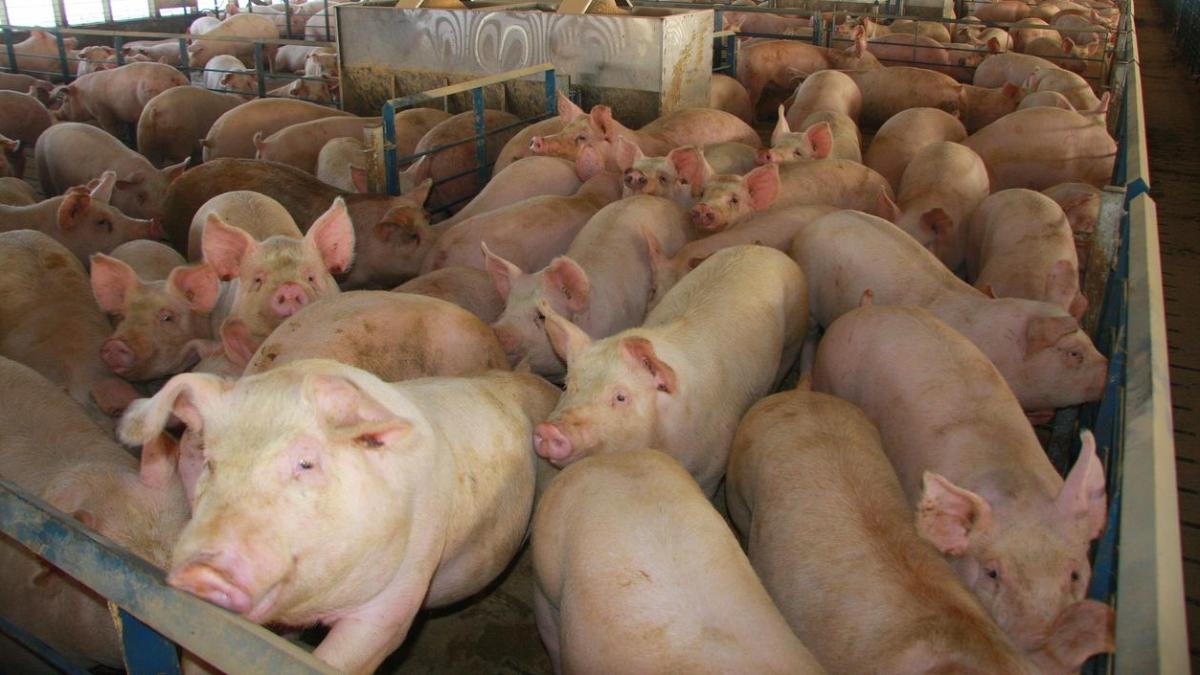Pigs resistant to classical swine fever created through gene editing

Scientists at the Roslin Institute in Edinburgh have used the CRISPR gene editing technique to alter a gene crucial to the replication of the classical swine fever (CSF) virus.
The study, conducted in collaboration with the UK Agency for Animal and Plant Health (APAH) and published today in the journal Trends in Biotechnology, was conducted on four animals and shows that the gene-edited animals remain completely healthy after being exposed to the virus.
“A devastating disease for livestock and farmers”“Classical swine fever is a devastating disease for livestock and farmers, as we saw with the outbreak in the UK 25 years ago,” said Helen Crooke, deputy director of mammalian virology at the Animal and Plant Health Agency (APHA), where the pig trial was conducted. “We hope this breakthrough can help strengthen the livestock sector’s resilience to the disease,” she told the British newspaper The Guardian.
CSF, also known as cholera or swine fever, causes fever, skin lesions, convulsions, diarrhea, and often death in less than two weeks. Although it was eradicated from the United Kingdom in 1966, it has caused sporadic outbreaks since then and remains endemic in countries such as China, Russia, and Brazil.
The study, the first to demonstrate viral resistance through genetic mutation, focused on the DNAJC14 gene associated with pestivirus replication. Previous research had shown that modifying a specific DNA sequence was enough to block viral replication.
Read alsoUsing this as a basis, Roslin's team—famous for cloning Dolly the sheep in 1996—created a line of pigs with the same genetic alteration and exposed them to the CSF plague virus along with a group of control pigs. While the unmodified animals developed severe symptoms and high levels of virus in their blood, the edited pigs remained completely healthy.
Opinion of Spanish expertsProfessor Joaquín Gadea, from the University of Murcia, praises the work as "high-quality, both in its experimental design and in the clarity of the results and their practical implications." He emphasizes that the cells derived from the modified animals also show resistance to the bovine viral diarrhea virus.
“Health, animal welfare, and economic implications”"The article confirms the usefulness of gene editing as a tool for generating viral resistance in farm animals, which has enormous health, animal welfare, and economic implications," says Joaquín Gadea, professor of Physiology and researcher at the Faculty of Veterinary Medicine at the University of Murcia. He also laments that European authorities have not yet authorized the commercial use of gene-edited animals, despite favorable reports from the EFSA. "This situation, coupled with the lack of business support and limited patent protection, is hindering the development of these models in Spain."
Professor Christian Gortázar, from the Institute for Research in Game Resources (IREC), agreed that the work is "methodologically sound and innovative." He also added, "The implications for CSF control could be significant. However, it is a disease that can be controlled through vaccines, biosecurity, and attention to the wildlife reservoir. It would be very interesting to achieve similar effects on more insidious diseases that do not yet have approved vaccines, such as African swine fever."
A change in the regulatory horizonThe breakthrough comes as countries like the United States, Japan, and Brazil are already allowing the commercialization of genetically edited livestock, while the United Kingdom, with its Precision Breeding Act, is moving in the same direction.
Read also The genetic mutation in horses that changed human history has been discovered. Josep Corbella
“There’s a moral imperative that if we can create disease-resistant animals, we probably should,” says Simon Lillico, co-author of the study.
For Emily Clark of EMBL's European Bioinformatics Institute, "research like this contributes to the creation of healthier animals, to reducing losses for farmers in areas affected by swine fever, and to a major advance in the use of innovation."
With this breakthrough, the Roslin Institute reaffirms its global leadership in animal biotechnology and opens a new era toward livestock that is more resilient to infectious diseases.
lavanguardia




